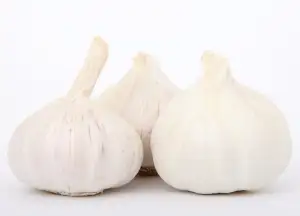Restore Your Cast Iron to Perfection: Expert Tips on How to Clean Rusty Cast Iron

Cast iron cookware is a beloved kitchen staple known for its durability and ability to retain heat. However, over time, cast iron can develop rust if not properly cared for. Cleaning rusty cast iron may seem daunting, but with the right techniques, you can restore your cookware to its former glory. In this article, we will provide expert tips on how to effectively clean rusty cast iron and ensure it lasts for generations to come.
Gather Necessary Supplies
To restore your rusty cast iron to perfection, you will need a few essential supplies. Firstly, gather a stiff-bristled brush or steel wool pad to scrub off the rust. Make sure the brush is specifically designated for cleaning cast iron to avoid cross-contamination with other materials. Additionally, you will require white vinegar, which is an effective natural rust remover. Lastly, have some paper towels or clean cloths on hand for drying the cast iron after cleaning. With these supplies ready, you can begin the process of bringing your cast iron cookware back to its former glory.
Scrub the Cast Iron with a Brush
To effectively clean rusty cast iron, start by scrubbing the surface with a stiff-bristled brush or steel wool. This will help remove any loose rust particles and debris. Make sure to scrub in circular motions to cover the entire surface area evenly. Avoid using soap at this stage as it can strip away the seasoning on the cast iron. The goal is to gently remove the rust without damaging the cast iron's natural patina. Once you have thoroughly scrubbed the surface, rinse off any remaining residue before moving on to the next step in the cleaning process.
Use Vinegar Solution to Remove Rust
To remove rust from your cast iron, create a vinegar solution by mixing equal parts of white vinegar and water in a container large enough to submerge the pan. Let the cast iron soak in the solution for a few hours or overnight, ensuring that all rusty areas are covered. The acidity of the vinegar will help to break down the rust, making it easier to scrub off later. After soaking, use a non-abrasive scrubber or brush to gently scrub away the loosened rust. Repeat this process if necessary until all rust is removed. Remember to wear gloves and work in a well-ventilated area when using vinegar for cleaning purposes.
Rinse and Dry the Cast Iron
After scrubbing the cast iron with a brush and using the vinegar solution to remove rust, it is crucial to thoroughly rinse the cast iron under running water. Make sure all traces of vinegar and rust are completely washed away. Once rinsed, use a clean towel to dry the cast iron completely. It is important to ensure that no moisture is left on the surface as this can lead to further rusting. Air drying can also be effective, but make sure the cast iron is completely dry before proceeding to the next step of applying oil.
Apply a Thin Layer of Oil
To ensure your cast iron stays in top condition, it's essential to apply a thin layer of oil after cleaning. This helps prevent rust from forming again and maintains the seasoning on the pan. Use a high smoke point oil like vegetable oil or flaxseed oil for this step. After drying the cast iron thoroughly, apply a small amount of oil all over the surface, including the handle and bottom. Use a paper towel to spread the oil evenly and remove any excess. This process helps create a protective barrier on the cast iron, keeping it seasoned and ready for your next cooking adventure.
Store the Cast Iron Properly
**Store the Cast Iron Properly**
Proper storage is key to maintaining the quality of your cast iron cookware. After cleaning and seasoning, ensure the cast iron is completely dry before storing to prevent rust from forming again. Store in a cool, dry place away from moisture to avoid any potential damage. To protect the seasoning, consider placing a paper towel or cloth between stacked pans to prevent scratching. Additionally, avoid storing food in cast iron for extended periods as it can lead to a breakdown of the seasoning layer. By following these storage tips, you can prolong the life of your cast iron cookware and continue enjoying its benefits for years to come.
Published: 14. 04. 2024
Category: Home



